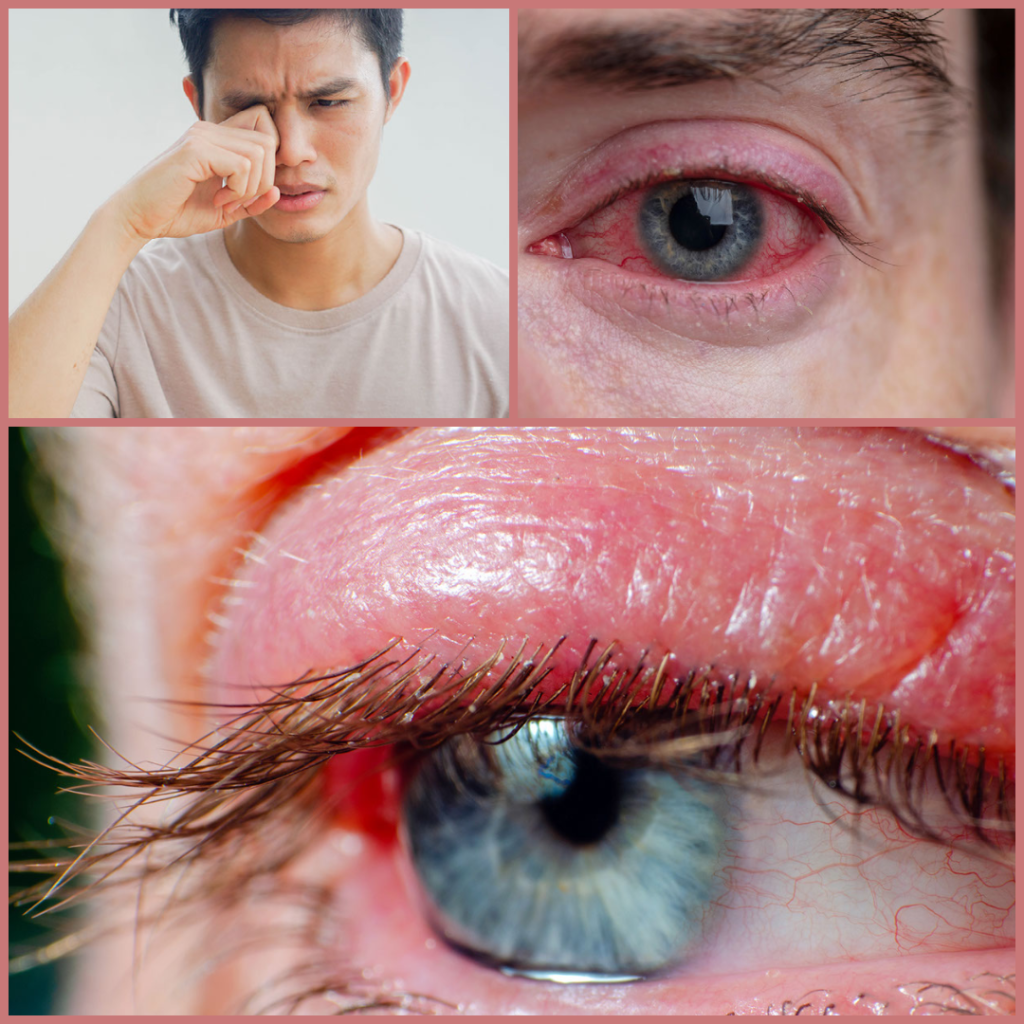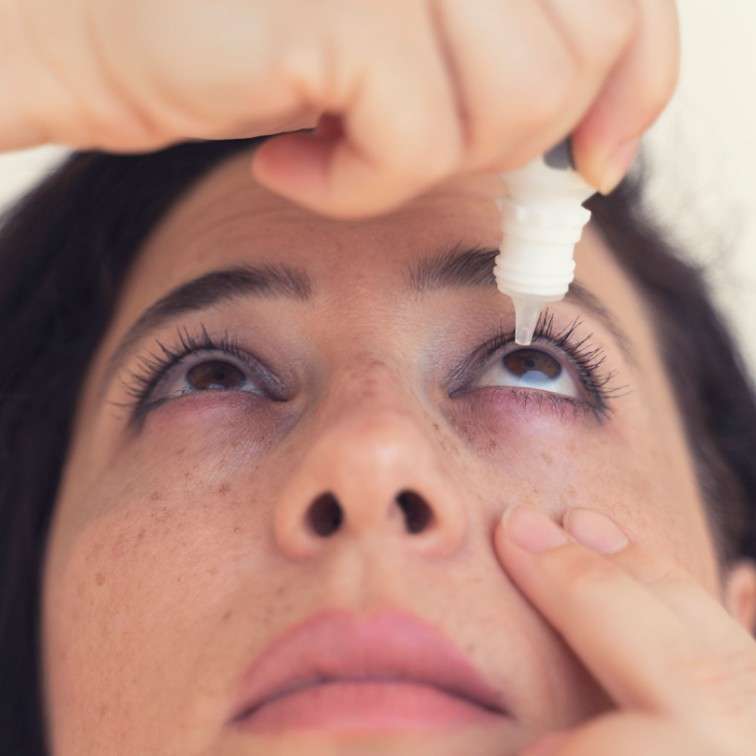We’ve all been guilty of the sin of rubbing our eyes. Which means that everyone experiences itchy eyes. It does not favor any particular age group or gender.
For most of us, allergy is the cause. Exposure to environmental allergens, triggers our immune systems and causes itching. But there are also other reasons. Let’s take a closer look.

1. Seasonal Allergies
Individuals with seasonal allergies experience itchy eyes at the same time each year. You might have an allergy to something that grows during that season, like a specific flower, pollen, or irritant.
As a result of the trigger, the body releases histamine, causing the blood vessels in the eyes to widen and releasing inflammatory mediators that cause itching. Histamine also causes eyes to water and burn.
Atopic keratoconjunctivitis is a chronic (persistent) allergic condition that affects the eyelids and cornea. Many patients with the skin condition atopic dermatitis are affected by it.
Another type of eye allergy is called vernal keratoconjunctivitis (VKC). This is a severe allergic inflammation of the ocular surface and is seasonal, bilateral, and recurrent.
If left untreated, this type of allergic eye disease, which is relatively uncommon, can severely harm the cornea and cause blindness. Boys under age 10 are typically affected.
Antiallergic eyedrops, steroid eyedrops, and immunomodulators are all used to treat eye allergies.
2. Airborne Irritants
Some people have sensitivity issues with smoke, particular perfumes, or even diesel and gasoline exhaust. They are advised to stay away from these locations and keep away from these irritants.
If it is seriously bothering your eyes, your doctor may recommend some eye drops to calm it down. You can also use a cold, damp cloth to cover your closed eyes to help them cool down.
3. Infections
An infection or inflammation of the conjunctiva known as conjunctivitis is characterized by redness and dilated conjunctival vessels. Additionally, these blood vessels may leak, causing redness and discharge.
The most common infectious agents that can spread through direct or indirect contact with an infected person are bacteria and viruses.
Allergy, toxic, and cicatricial conjunctivitis, as well as inflammation brought on by immune-mediated illnesses and neoplastic processes, are examples of conjunctivitis that is not contagious.
4. Dry Eyes
The surface of the eyes become uncomfortable and dry if there is not enough tear production, or if the tear film is unstable and quickly evaporates.
The instability of the tears causes inflammation and eye surface damage. Reflexive watering, redness, a gritty sensation, and itching result from this.
Treatment for mild to moderate dry eyes can be achieved with over-the-counter lubricating eyedrops, but for moderate to severe cases, additional testing and examination are required to identify the underlying causes and determine the most effective course of action.
5. Eye Strain
The most common causes of eye strain include long-term computer use, reading in low light, long drives in low or excessively bright light, lack of sleep, dehydration, caffeine use, excess consumption of fatty and processed foods, and exposure to fans and air conditioning.
6. Uncorrected refractive error:
Having uncorrected refractive errors causes vision to become blurry and distorted, leading to eye fatigue when reading, working on the computer, or other prolonged staring activities. This can cause eye irritation, itching, and redness.
7. Contact Lenses
Extreme itchiness and pain in the eyes can result from wearing contact lenses for an extended period of time or from sleeping while wearing them.
While wearing contact lenses gives you a lot of flexibility, there are many things to keep in mind if you want to make the most of them.
This includes removing them before going to bed, limiting daily wear to not more than what is recommended, handling them with clean hands, and keeping them in a container that has been disinfected.
8. swelling of the eyelids
Crusts can form on unhygienic eyelids as a result of the buildup of oil, bacteria, and dead cells. It can result in eyelid margin inflammation, redness, and watering in addition to burning, discomfort, and irritation. Demodex mites can lead to eyelid inflammation or blepharitis.
Warm compresses, lid scrubs, and lubricating eye drops will help most cases, though some may require antibiotics.
WHAT NOT TO DO WHEN THERE IS ITCHING

- Don’t rub your eyes: It’s important to understand that rubbing your eyes can permanently damage your vision, so it’s best to refrain from doing it. If you experience itching, speak with your eye doctor; they’ll likely suggest lubricating eye drops and allergy medications. Meanwhile, one can start using over-the-counter lubricating eye drops for short-term relief.
- Avoid vigorously washing them with water because tears contain a special mixture of oil, water, and mucin that protects the surface of the eye. Washing your eyes vigorously may irritate them and damage the protective oily layer, making them susceptible to eye infections..
- Avoid using rosewater inside your eyes if you are experiencing itching. Do not use any drops other than lubricating eye drops. If you experience stinging, redness, or burning after using rosewater on your eyes, speak with a doctor.
HOW TO AVOID ITCHINESS:

- It is best to stay away from places where you may be exposed to irritants or allergens. Wash your face and eyes gently after spending time outdoors.
- To soothe and relax your eyes, apply cold compresses using cucumber slices, frozen green tea bags, or use over-the-counter lubricating eye drops.
- When using a computer, blink consciously to spread the tear film evenly, and follow the 20-20-20 rule by taking a break for 20 seconds every 20 minutes to look at something 20 feet away.
- To prevent eye fatigue, work in a well-lit space.
- Do not use old or expired eye makeup, and try to use gentle makeup that contain no fragrance or other ingredients known to irritate skin.
- Avoid applying eye makeup to the oil gland openings that are right behind your eyelashes because doing so can clog these openings, which can lead to dryness and even styes.
- To prevent eye strain, drink water and stay hydrated throughout the day.
- Uncorrected refractive power frequently results in itching as well. Therefore, get your eyes checked, then put on the recommended glasses.
- Wear sunglasses when you’re outside and while driving in bright light.
- Avoid direct exposure to a fan or an air conditioner.
